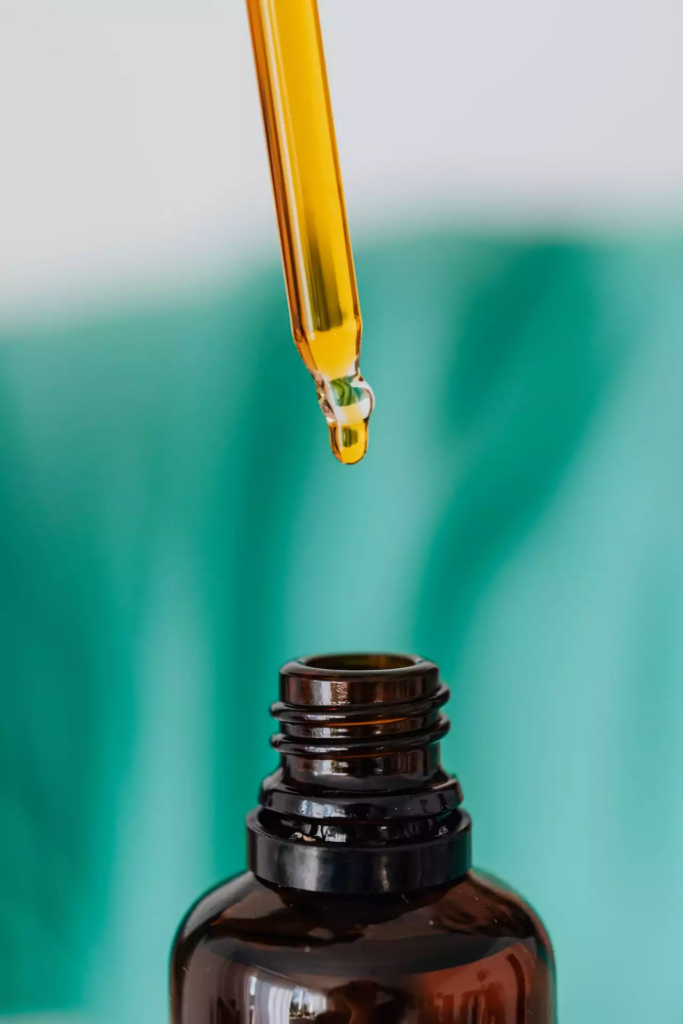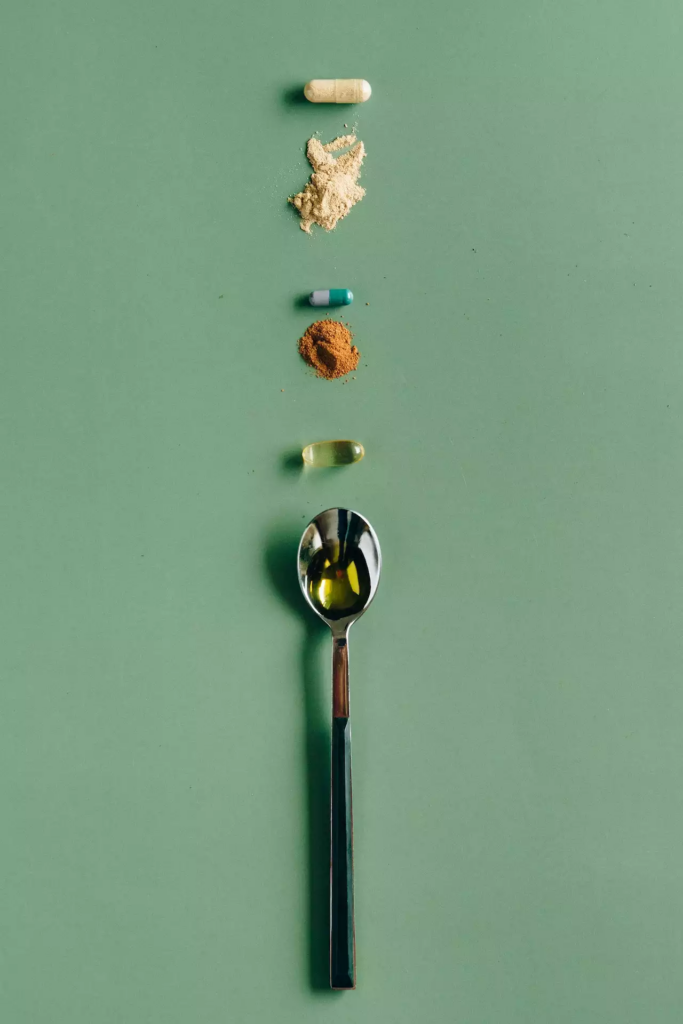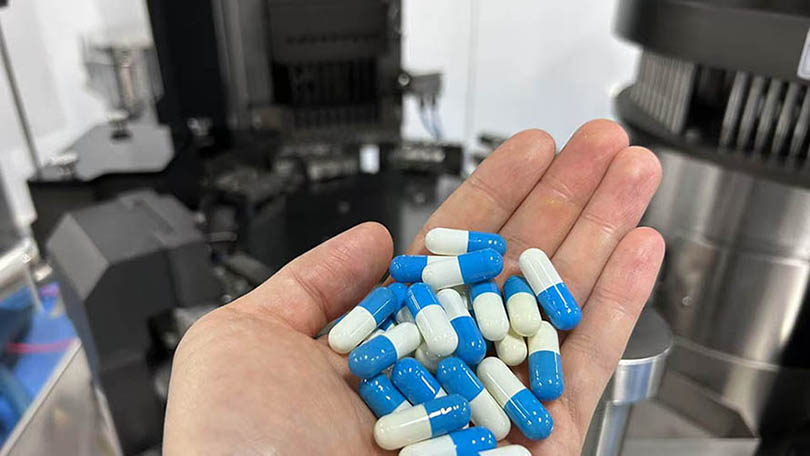যদি আপনি এর মধ্যে পার্থক্য সম্পর্কে কোনও তথ্য খুঁজছেন তরল এবং কঠিন সম্পূরক এবং আপনার এবং আপনার পরিবারের জন্য কোনটি ভালো তা বের করতে চান, এটি আপনার জন্য নির্দেশিকা।
তরল পরিপূরক কী?

সূত্র: পেক্সেলস
তরল সম্পূরকগুলিতে বিভিন্ন ধরণের পুষ্টি দ্রবীভূত হয়, যাকে তরল সম্পূরক বলা হয়। তরল সম্পূরকের ধরণের উপর নির্ভর করে, পুষ্টি কম-বেশি হতে পারে। এগুলি শরীরকে প্রয়োজনীয় প্রয়োজনীয় পুষ্টি সরবরাহ করার জন্য তৈরি করা হয় যা হয় সাধারণ খাদ্যতালিকায় পাওয়া যায় না বা ঘাটতি থাকে। সর্বোত্তম স্বাস্থ্য বজায় রাখার জন্য প্রয়োজনীয় নির্দিষ্ট পুষ্টির সরবরাহ বাড়ানোর জন্য এগুলি ব্যবহার করা হয়। যারা তাদের শরীরে নির্দিষ্ট পুষ্টি বৃদ্ধি এবং যোগ করতে চান তারা এগুলি ব্যবহার করেন।
বিভিন্ন স্বাদের তরল সাপ্লিমেন্ট দেওয়া হয়। তাই যদি আপনার পছন্দ না হয় তাহলে অন্য স্বাদটি বেছে নিতে পারেন। বয়সের সাথে সাথে শরীর দুর্বল হয়, তাই শরীরকে সুস্থ রাখতে এবং উপাদানের ঘাটতির সমস্যা প্রতিরোধ করার জন্য আপনাকে অবশ্যই প্রয়োজনীয় পুষ্টি সরবরাহ করতে হবে। যেহেতু তরল সাপ্লিমেন্টে একটি বোতলে বিভিন্ন ধরণের মিশ্র পদার্থ থাকে, তাই তারা আপনাকে সেই লক্ষ্য অর্জনে সহায়তা করতে পারে। এটিকে মনোরম এবং আকর্ষণীয় করে তুলতে, এই পুষ্টিগুলিকে অতিরিক্ত স্বাদের সাথে একত্রিত করা হয়।
কেউ কেউ তরল পরিপূরক উৎপাদন প্রক্রিয়াটি গভীরভাবে খতিয়ে না দেখে এমনকি নিজেরাই পরিপূরক তৈরি করতেও চাইতে পারেন। সৎ, বিশ্বস্ত এবং মানসম্পন্ন হতে পারেন। ফার্মাসিউটিক্যাল প্যাকেজিং যন্ত্রপাতি এই প্রক্রিয়ায় একটি গুরুত্বপূর্ণ ভূমিকা পালন করে, যার কাজগুলি ক্যাপসুল ভর্তি করা, ট্যাবলেট টিপে দেওয়া, ট্যাবলেট ক্যাপসুল বা আঠা গণনা করা থেকে শুরু করে ফোস্কা দিয়ে প্যাকিং করা বা বাক্সে কার্টন করা পর্যন্ত। বিশেষ করে, ক্যাপসুল ফিলিং মেশিন, যা ক্যাপসুল ফিলার, এনক্যাপসুলেটর বা এনক্যাপসুলেটিং মেশিন নামেও পরিচিত, ক্যাপসুল ভর্তি প্রক্রিয়াটিকে সহজ করে তুলতে পারে। সহজ কথায়, ক্যাপসুল ফিলার হল এমন একটি সরঞ্জাম যা ওষুধ প্রয়োগে ব্যাপকভাবে ব্যবহৃত হয়। তরল পরিপূরকগুলির জন্য, নরম ক্যাপসুল ভর্তি আপনার তরল পরিপূরক উৎপাদনের জন্য মেশিনটি এক-স্টপ সমাধান প্রদান করতে পারে। হাতে নিজের ক্যাপসুল ভর্তি করা একটি অগোছালো এবং হতাশাজনক কাজ হতে পারে। এখানেই কিছু স্বয়ংক্রিয় তরল ক্যাপসুল-ফিলিং মেশিন এবং জেল ক্যাপসুল ফিলিং মেশিন আসে।
সাধারণ তরল সম্পূরক প্রকারভেদ

সূত্র: পেক্সেলস
তরল সম্পূরকের একটি রূপ হল একটি তরল ভিটামিন সম্পূরক। এই সম্পূরকগুলি একা অথবা খাবার বা পানীয়ের সাথে একত্রে গ্রহণ করা যেতে পারে। সম্পূরকের গঠন ভিন্ন হতে পারে, একটি নির্দিষ্ট ভিটামিন সরবরাহকারী সম্পূরক থেকে শুরু করে এমন একটি মিশ্রণ যা একজনের সামগ্রিক ভিটামিন গ্রহণের পরিপূরক হিসেবে তৈরি করা হয়। যদি সম্ভব হয়, তাহলে এই সম্পূরকগুলি খাবারের সাথে নিন কারণ খাবারের সাথে গ্রহণ করলে এগুলি আরও ভালোভাবে শোষিত হয়।
আরেক ধরণের তরল সম্পূরক হল একটি সম্পূরক যা প্রদান করে ভিটামিন এবং খনিজ পদার্থের মিশ্রণ শেক বা পানীয়ের আকারে যা খাবার ছাড়াই স্বাধীনভাবে খাওয়ার জন্য। যাদের পর্যাপ্ত পরিমাণে খেতে সমস্যা হয়, তাদের জন্য নিয়মিত খাবারের পাশাপাশি এই ধরণের সম্পূরক গ্রহণের উদ্দেশ্যে। কিছু ক্ষেত্রে, এটি খাবারের সাথেও নেওয়া যেতে পারে। এই ধরণের তরল সম্পূরক ক্যান্সার রোগীদের পাশাপাশি পুষ্টির ঘাটতি রয়েছে এমন অনেক ব্যক্তি, যেমন খাওয়ার ব্যাধি থেকে সেরে ওঠা ব্যক্তিরা ব্যবহার করেন।
তরল বনাম কঠিন
সুষম খাদ্য সকল স্বাস্থ্য সমস্যার জন্য একটি ঔষধ। পেট ভরে ও পুষ্টিকর খাবার আপনাকে সক্রিয় রাখার প্রতিশ্রুতি দেয়। অন্যদিকে, পরিপূরকগুলি দৈনন্দিন পুষ্টির চাহিদা পূরণের জন্য কার্যকর হতে পারে। অসুস্থতা বা চাপের সময় এগুলি আরও গুরুত্বপূর্ণ। পরিপূরকগুলি বিভিন্ন আকারে পাওয়া যায়, যার মধ্যে ট্যাবলেট, ক্যাপসুল এবং তরল আকারের মতো কঠিন পদার্থ রয়েছে। প্রতিটি রূপের নিজস্ব সুবিধা এবং অসুবিধা রয়েছে।
শোষণ
নির্মাতারা প্রায়শই দাবি করেন যে তরল ভিটামিনগুলি কঠিন ভিটামিনগুলির তুলনায় ভালোভাবে শোষিত হয়, কিন্তু এর সমর্থনে পর্যাপ্ত বৈজ্ঞানিক প্রমাণ নেই। শরীর কীভাবে পাউডার, ক্যাপসুল বা বড়ি আকারে সম্পূরক ভিটামিনগুলি শোষণ করে সে সম্পর্কে উচ্চমানের বৈজ্ঞানিক গবেষণার অভাব রয়েছে। FDA-এর জন্য বাজার-পূর্ব পরীক্ষার প্রয়োজন নেই, এবং যদিও সম্পূরক প্রস্তুতকারকদের ভাল উৎপাদন পদ্ধতি অনুসরণ করতে হবে, তবে অতিরিক্ত নিয়ন্ত্রণ খুব কম। তরল ভিটামিন সম্পর্কে একটি দাবি হল যে যেহেতু এগুলি কঠিন ট্যাবলেটের অংশ নয় বা ক্যাপসুলে আবদ্ধ নয়, তাই এগুলি রক্তপ্রবাহে আরও কার্যকরভাবে এবং দ্রুত শোষিত হয়।
প্রকৃতপক্ষে, একটি পুষ্টির জৈব উপলভ্যতা এবং শোষণের হার বিভিন্ন কারণ দ্বারা প্রভাবিত হয়, যার মধ্যে তরল বা ক্যাপসুলের অন্যান্য উপাদানও অন্তর্ভুক্ত, যা পুষ্টির শোষণকে উন্নত করতে পারে বা নাও করতে পারে। তাছাড়া, শোষণকে শূন্যস্থানে মূল্যায়ন করা যায় না; এটি মানুষের উপর মূল্যায়ন করা আবশ্যক। এবং মানুষ অপরিবর্তিত নয়। স্বতন্ত্র স্বাস্থ্য পরিস্থিতি নির্ধারণ করতে পারে যে একজন ব্যক্তির শরীর কতটা অভ্যন্তরীণ উপাদান তৈরি করতে সক্ষম, যা নির্ধারণ করবে যে একজন ব্যক্তি কতটা পরিপূরক শোষণ করতে পারে। এই সমস্ত পরিবর্তনশীল জৈব উপলভ্যতা গবেষণাকে বাধাগ্রস্ত করতে পারে। তরল ক্যাপসুল বা অন্যান্য পরিপূরক ফর্মের তুলনায় দ্রুত শোষিত হয় এমন দাবি গ্রাহকদের বোঝানোর জন্য একটি ভাল বিপণন কৌশল যে তরলগুলি আরও কার্যকর; তবে, শোষণের হার এবং জৈব উপলভ্যতা একই ধারণা নয়। একটি গবেষণা প্রতিষ্ঠানের মতে, দ্রুত শোষণ ভাল কার্যকারিতা উপস্থাপন করে না এবং এটি নির্ভর করে।
তরল কখন ভালো
তাহলে তরল সম্পূরক কখন বেশি উপযুক্ত? নীচে বেশ কয়েকটি শর্ত তালিকাভুক্ত করা হল।
যদি আপনার ছোট ছেলে বা মেয়ে কোন নির্দিষ্ট রোগে ভুগছে, এবং তাকে ওষুধ খেতে হয়, তাহলে তরল সম্পূরকটি তার কঠিন প্রতিরূপের চেয়ে ভালো বলে মনে হয়।
এমন পরিস্থিতি কল্পনা করুন, যার গিলতে সমস্যা হয় তাকে ভিটামিন নিতে হবে, তারপর তরল ভিটামিনটি আরও ভালো বিকল্প হিসেবে কাজ করবে। বয়স্ক এবং শিশুরাই কেবল এই সমস্যায় পড়তে পারে না, কারণ এটি সকল বয়সের মানুষের জন্য একটি সাধারণ সমস্যা। ভালো দিক থেকে একটা ঘটনা। কিছু লোকের এমন রোগগত অবস্থা থাকে যা তাদের পক্ষে এটি করা কঠিন করে তোলে, যেমন ক্রমাগত ডিসফ্যাগিয়া, যা গিলে ফেলার সময় ব্যথার কারণে অপুষ্টি এবং পানিশূন্যতার কারণ হতে পারে। ফলস্বরূপ, তরল ভিটামিন বড়ি খাওয়ার একটি সহজ বিকল্প প্রদান করে।
যদি আপনার এমন কোনও রোগগত অবস্থা থাকে যার জন্য আপনাকে পরিপূরক গ্রহণ করতে হয় উচ্চ মাত্রা, আপনাকে তরল সম্পূরক নির্ধারণ করা হতে পারে। এটি একটি আরও সাশ্রয়ী এবং ব্যবহারিক বিকল্প কারণ পছন্দসই ডোজ অর্জনের জন্য আপনাকে অনেক বড়ি বা ট্যাবলেট কিনতে হবে না এবং আপনি আরও দক্ষতার সাথে সম্পূরকটি গ্রহণ করতে পারেন। তা ছাড়া, ডোজটি সহজেই সামঞ্জস্যযোগ্য। উদাহরণস্বরূপ, যদি আপনার পুরো পরিবার রোগ প্রতিরোধ ক্ষমতা বাড়ানোর জন্য একটি সম্পূরক গ্রহণ করে, তাহলে তরল রূপটিই পছন্দনীয় কারণ আপনি তাদের বয়সের উপর ভিত্তি করে প্রতিটি ব্যক্তির জন্য ডোজটি তৈরি করতে পারেন। আপনি আপনার স্ত্রী এবং নিজেকে এক টেবিল চামচ এবং আপনার সন্তানকে এক চা চামচ সাপ্লিমেন্টটি দিতে পারেন।
যখন সলিড কন্টেন্ট ভালো হয়
যদিও কিছু পরিস্থিতিতে তরল সম্পূরকগুলির অনেক সুবিধা রয়েছে, তবুও অনুশীলনকারীর দ্বারা কঠিন সম্পূরকগুলি সুপারিশ করার সম্ভাবনা বেশি। এখানে কিছু উদাহরণ দেওয়া হল:
যখন শোষণের হার সারা দিন ধরে ধীরে ধীরে বজায় থাকে, যেমন বি ভিটামিন, ম্যাগনেসিয়াম এবং জিঙ্ক, তখন রোগীর প্রয়োজনের জন্য এগুলি আরও ভালো।
যখন অন্ত্রের স্বাস্থ্যের জন্য ধীর তরল শোষণের সুবিধা দ্রুত তরল শোষণের সুবিধার চেয়ে বেশি হয়। যদি ভিটামিন খুব দ্রুত শোষিত হয়, তাহলে ডায়রিয়ার মতো অপ্রীতিকর পার্শ্বপ্রতিক্রিয়ার ঝুঁকি থাকে।
যখন আপনি ব্যবসায়িক ভ্রমণে থাকবেন অথবা বেশ কয়েক দিনের জন্য বাইরে থাকবেন, তখন শক্ত পোশাকগুলি আপনার জন্য বহন করা আরও সুবিধাজনক হবে।
তরল এবং কঠিনের মধ্যে কীভাবে নির্বাচন করবেন

সূত্র: পেক্সেলস
অনেক মানুষ এই প্রশ্নে বিরক্ত হন যে তরল সম্পূরকটি তার কঠিন প্রতিরূপের চেয়ে ভালো কিনা। আসলে, এর কোন সহজ উত্তর নেই। উভয়ই ভিটামিন এবং অন্যান্য পুষ্টি সরবরাহ করতে পারে এবং উত্তরটি নির্ভর করবে আপনি ভিটামিন সম্পূরকটিতে কী খুঁজছেন তার উপর। তবে, কিছু টিপস রয়েছে যা আপনাকে তাদের মধ্যে একটি পছন্দ করতে সাহায্য করতে পারে।
প্রথমত, যদি খরচ একটি বিষয় যা আপনাকে অবশ্যই বিবেচনায় নিতে হবে, তাহলে একটি কঠিন সম্পূরক আরও গ্রহণযোগ্য হতে পারে। সাধারণত, একটি কঠিন সম্পূরক তরল সম্পূরকের চেয়ে কম ব্যয়বহুল। কারণ প্রথমটির দীর্ঘ মেয়াদ থাকে এবং পরিবহন করা সহজ।
দ্বিতীয়ত, শিশু, শিশু, বয়স্ক এবং যাদের আছে তাদের সহ একটি নির্দিষ্ট গোষ্ঠীর জন্য হজমের সমস্যা অথবা যাদের বড়ি গিলতে সমস্যা হয়, তাদের তরল সম্পূরকগুলি কঠিন সম্পূরকগুলির তুলনায় গ্রহণ করা অনেক সহজ এবং শরীর দ্বারা আরও সহজে শোষিত হয়।
তৃতীয়ত, সক্রিয় উপাদানগুলি শরীর দ্বারা শোষিত এবং নির্গত হওয়ার আগে রক্তে ভিটামিনের পরিমাণ কতক্ষণ থাকে তাকে বলা হয় মেয়াদ শেষ হওয়ার তারিখ। সলিড সাপ্লিমেন্টের সাথে স্টেবিলাইজার যোগ করার কারণে সাধারণত এগুলোর শেলফ লাইফ বেশি থাকে। এই এজেন্টগুলো বড়িগুলোর শারীরিক গঠনের জন্য দায়ী। শক্ত ট্যাবলেটে ফিলার থাকে, যেখানে ক্যাপসুলগুলো সেলুলোজ দিয়ে তৈরি। যদিও এই স্টেবিলাইজারগুলো ভিটামিনের আয়ু বাড়ায়, তবুও তাদের সাধারণ নিরাপত্তা নিয়ে বিতর্ক চলছে। এগুলো কৃত্রিম নাকি উদ্ভিদ-ভিত্তিক তা বোঝা গুরুত্বপূর্ণ। অতএব, অতিরিক্ত এজেন্ট সম্পর্কে আপনার যদি উদ্বেগ থাকে তবে তরল সাপ্লিমেন্টের সুপারিশ করা হবে।
উপসংহার

সূত্র: পেক্সেলস
বিভিন্ন কারণে, কঠিন এবং তরল সম্পূরকগুলি ক্রমশ জনপ্রিয় হয়ে উঠছে। যারা কঠিন এবং তরল সম্পূরক গ্রহণ করেন তারা সাধারণত তাদের স্বাস্থ্যের উন্নতি করতে বা পুষ্টির ঘাটতি পূরণ করতে চান। এই সম্পূরকগুলি প্রায় যে কেউ নিরাপদে গ্রহণ করতে পারেন। তবে, যদি আপনার কোনও অন্তর্নিহিত চিকিৎসাগত সমস্যা থাকে বা আপনি কোনও ওষুধ গ্রহণ করেন, তাহলে কোনও নতুন সম্পূরক পদ্ধতি শুরু করার আগে আপনার সর্বদা আপনার ডাক্তারের সাথে পরামর্শ করা উচিত। কোনও নেতিবাচক প্রভাব এড়াতে, লেবেলগুলি সাবধানে পড়া এবং প্রস্তাবিত ডোজগুলি মেনে চলাও অত্যন্ত গুরুত্বপূর্ণ।
আজকাল, বাজারে প্রচুর পরিমাণে কঠিন এবং তরল সাপ্লিমেন্ট পাওয়া যায়, তাই কোথা থেকে শুরু করবেন তা জানা কঠিন। বিশেষ করে, যদি আপনি একজন ফিটনেস প্রেমী হন, তাহলে আপনার সামনে অ্যামিনো অ্যাসিড এবং প্রয়োজনীয় তেলের মতো মাল্টিভিটামিনের দীর্ঘ তালিকা থাকতে পারে। তবে মনে রাখবেন: আপনার জন্য সঠিক পণ্যগুলি খুঁজে বের করার সর্বোত্তম উপায় হল পরীক্ষা-নিরীক্ষা করা এবং দেখা যে আপনার শরীর এবং আপনার জীবনযাত্রার জন্য কোনটি সবচেয়ে ভালো কাজ করে।
সংক্ষেপে বলতে গেলে, কঠিন এবং তরল সম্পূরক গ্রহণের মধ্যে গুরুত্বপূর্ণ পার্থক্য রয়েছে। তবে, উভয়ই বেশ কয়েকটি গুরুত্বপূর্ণ সুবিধা প্রদান করতে পারে যা আপনাকে সুস্থ রাখতে সহায়তা করতে পারে।


